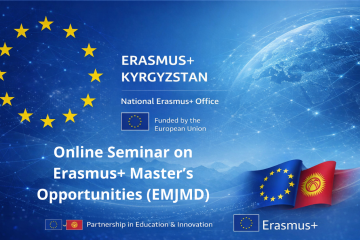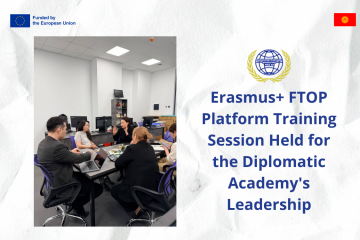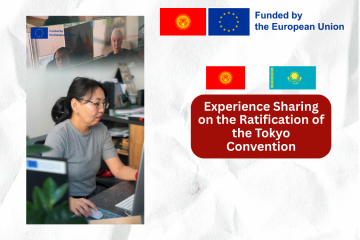On 22 September 2025, Adam University hosted a Technical Assistance Mission (TAM) Seminar titled “Enhancing Higher Education in Kyrgyzstan: Implementing Hybrid Learning Models for Inclusive and Future-Ready Education.” The seminar was jointly organized by the National Erasmus+ Office in Kyrgyzstan and Adam University, bringing together accreditation bodies, higher education leaders, faculty members, and international experts.
The event focused on how hybrid learning—combining online and face-to-face delivery—can expand access to education, especially for students in rural and remote communities, while also enhancing teaching quality and aligning higher education with global developments.
The programme included several thematic sessions:
-
Concepts and Trends in Hybrid Learning
Presented by the Head of the European Higher Education Area Secretariat. This session introduced the main features of hybrid learning, its benefits and challenges, and global drivers of digitalisation in higher education. -
Inclusion in Hybrid Education
Led by an international higher education expert. The presentation focused on best practices for inclusive course design and ways to address barriers such as connectivity gaps, limited digital literacy, and infrastructure challenges. -
Pedagogical Design and Teaching Methodologies
Facilitated by an international expert on learning and teaching. The session explored how to design engaging hybrid courses that balance synchronous and asynchronous formats, apply active learning strategies, and integrate technology effectively. -
Case Studies from Kyrgyz Higher Education Institutions
Presented by representatives of Kyrgyz universities. They highlighted their current efforts in digitalisation and hybrid learning, outlining challenges faced and factors contributing to successful implementation. -
Policy, Legislation, and Accreditation
Delivered by the Head of the European Higher Education Area Secretariat. This session examined policy frameworks, accreditation standards, and quality assurance requirements needed to support sustainable hybrid programmes. -
Collaborative Discussions
Breakout sessions allowed participants to design institutional strategies for advancing hybrid education.
The closing session summarized the main outcomes, highlighting the importance of legislative support, robust institutional strategies, and ongoing international cooperation. Participants agreed on the need for follow-up activities, including capacity-building trainings, working groups, and strengthened partnerships to further advance hybrid learning in Kyrgyzstan.


